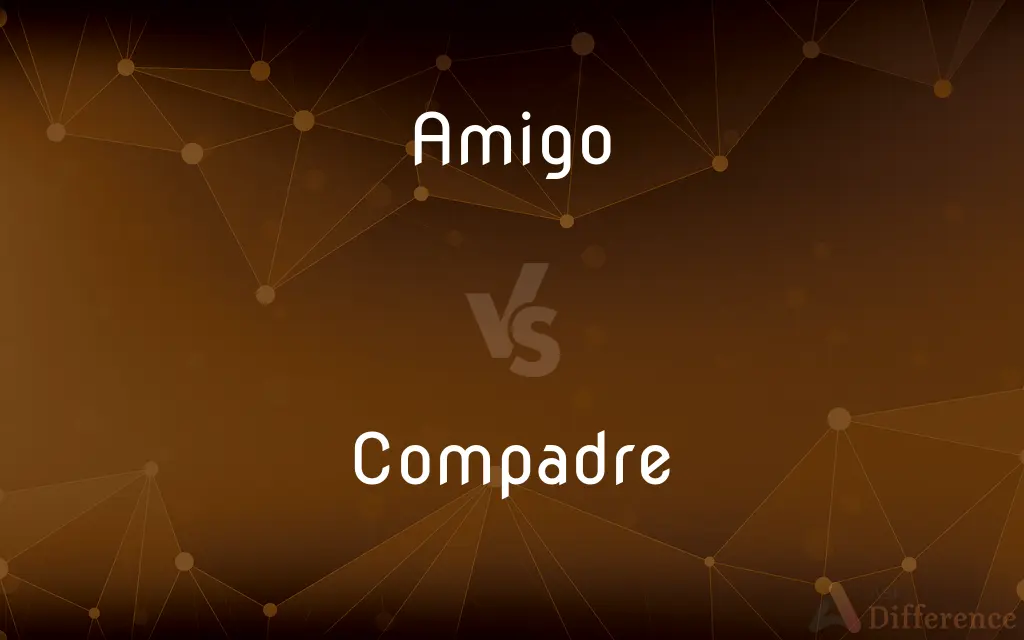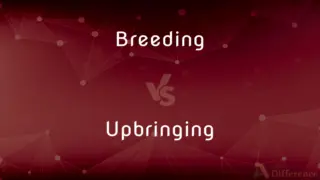Amigo vs. Compadre — What's the Difference?

Difference Between Amigo and Compadre
ADVERTISEMENT
Compare with Definitions
Amigo
A friend.
Compadre
The compadre (Spanish: [komˈpaðɾe], Portuguese: [kõˈpaðɾɨ], [kõˈpadɾi], literally "co-father" or "co-parent") relationship between the parents and godparents of a child is an important bond that originates when a child is baptised in Iberian, Latin American, Filipino Christian and Indian Christian Brahmin families. The abstract noun compadrazgo (Spanish and Filipino), compadrio (in Portuguese), both meaning "co-parenthood," is sometimes used to refer to the institutional relationship between compadres.From the moment of a baptism ceremony, the godparents (godfather and godmother, padrino and madrina in Spanish, padrinho and madrinha in Portuguese, and ninong and ninang in Filipino) share the parenting role of the baptised child with the natural parents.
Amigo
(informal) A friend.
Compadre
A close friend or associate; a companion.
Amigo
Mexican.
ADVERTISEMENT
Compadre
A friend or companion.
Amigo
(historical) A native of the Philippines who was friendly toward the Spanish.
Amigo
A friend; - a Spanish term applied in the Philippine Islands to friendly natives.
Amigo
A friend or comrade
Share Your Discovery

Previous Comparison
Meet vs. Greet
Next Comparison
Breeding vs. Upbringing















































